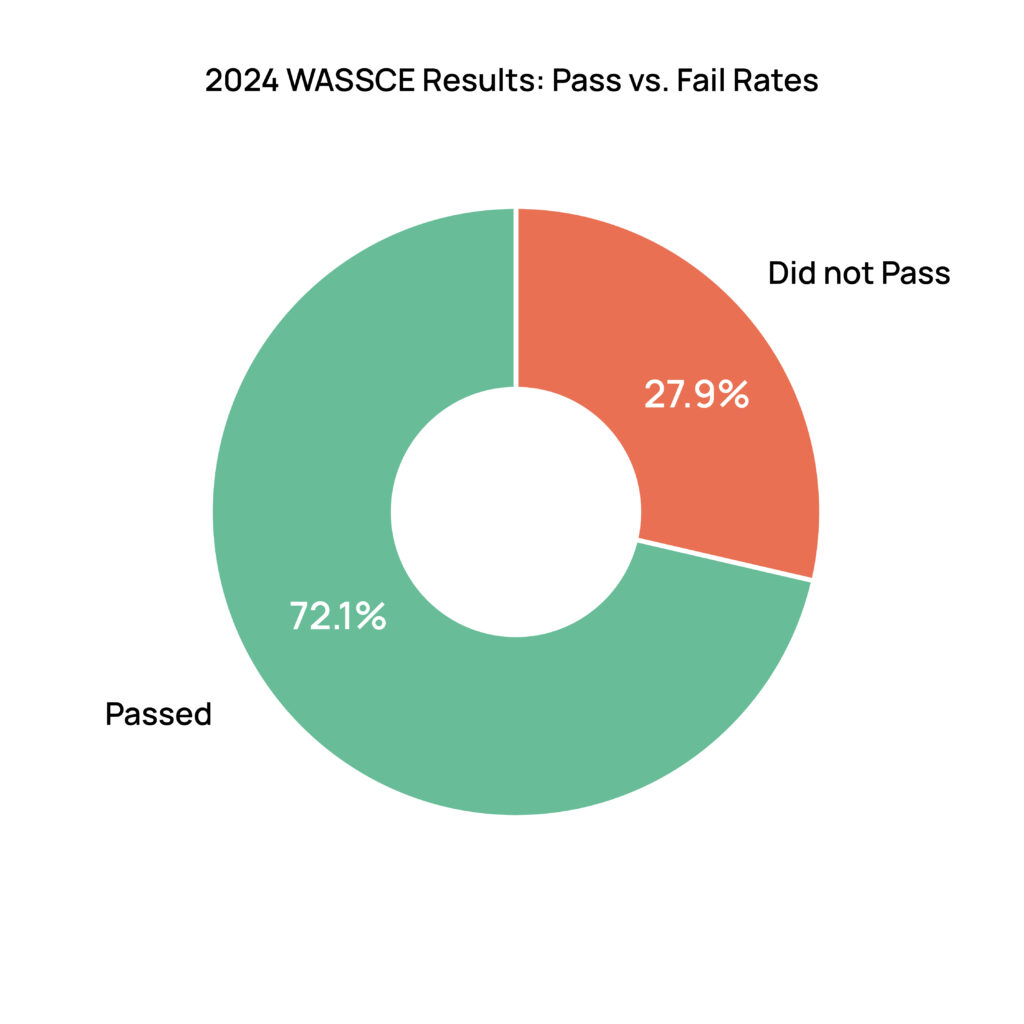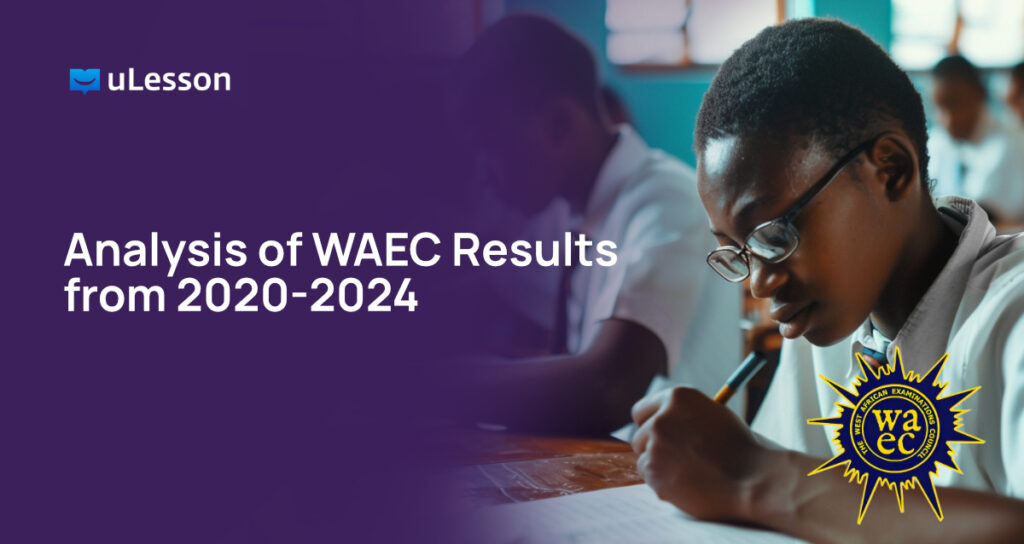The West African Senior School Certificate Examination (WASSCE) results from 2020 to 2024 reveal important trends and shifts in student performance across Nigeria. During this period, fluctuations in pass rates highlighted both progress and challenges in the country’s education system.
Year-by-Year Analysis of WASSCE Results from 2020-2024
2020: Bouncing Back from COVID-19
In 2020, 39.82% of candidates achieved five credits, including English and mathematics. This decrease from the previous year reflected the impact of the COVID-19 pandemic on education.
The pandemic caused significant disruptions, including school closures, likely contributing to the lower registration and pass rates. Only 66,375 candidates registered for the exam, representing a significant 31.63% decline in enrolment compared to previous years.
This drop underscores the broader challenges students faced during the pandemic, such as limited access to learning resources.

2021: Remarkable Improvement
The 2021 WASSCE results showed a dramatic improvement, with a total of 1,573,849 candidates registered for the exam and 81.7% of those who sat for it achieving the required five credits, including English and Mathematics. This substantial increase can be attributed to efforts to restore educational activities after the disruptions of 2020.
Regions like the North East, which had faced severe challenges due to insecurity, showed marked improvements thanks to targeted educational interventions. This increase also reflects a return to normalcy in student participation.

2022: A Dip in Performance
In 2022, the pass rate declined slightly to 76.36%. Although this represented a decrease from the previous year, the performance remained relatively strong. Out of the 1,601,047 candidates who registered for the exams, only 1,222,505 actually sat for the examination.
2023: Recovery and Stabilisation
The 2023 results indicated a modest recovery, with 79.81% of students obtaining the required five credits. This indicated a stabilisation in student performance after the dip in 2022. The results suggested that some of the challenges from the previous year had been addressed, although there remained room for improvement.
2024: A Noticeable Decline
The most recent results in 2024 showed a decline, with only 72.12% of candidates achieving five credits, including English and mathematics. This 7.69% drop from the previous year is concerning, especially given the large number of candidates—1,805,216—who sat for the exam. The decline may point to systemic issues that need to be addressed, such as overcrowded classrooms, insufficient teaching resources, or broader socio-economic challenges.

Importance of Five Credits, Including Mathematics and English
Achieving five credits, including mathematics and English, is critical for students in Nigeria, as it is a basic requirement for admission into higher education institutions. These subjects are foundational for most academic and professional pathways, and they provide students with essential skills needed for further studies and employment.
Ensuring that a higher percentage of students meet this benchmark is vital for the country’s educational development and for preparing its youth for the future.
The uLesson app offers the necessary assistance every student needs to get 5 credits and more in their final exams. With easy-to-understand video lessons, practice tests, and mock exams, WAEC candidates can get prepared and confident ahead of their exams.

Attending Miva Open University
Learners with at least five credits in relevant subjects, obtained within no more than two sittings, can apply for a bachelor’s programme at Miva Open University. Interestingly, there’s no need for JAMB UTME or to pay for your application at Miva. Miva offers the flexibility of online learning with the added benefits of physical resources and assistance. Click here to apply.
Conclusion
The WAEC results from 2020 to 2024 demonstrate both progress and setbacks in Nigeria’s education sector. The significant improvement in 2021, followed by declines in 2022 and 2024, highlights the need for continuous monitoring and targeted interventions to ensure sustained progress. As the number of students participating in WASSCE continues to grow, maintaining consistent quality in education across all regions is crucial.
Are you preparing to write WASSCE or other final exams next year? Or do you know someone who will? Download the uLesson app and enjoy 5-days of premium access for free! Gain unlimited premium access for as low as N12,000 for 3 months or N50,000 for 3 years! Hurry!




One comment
Nice